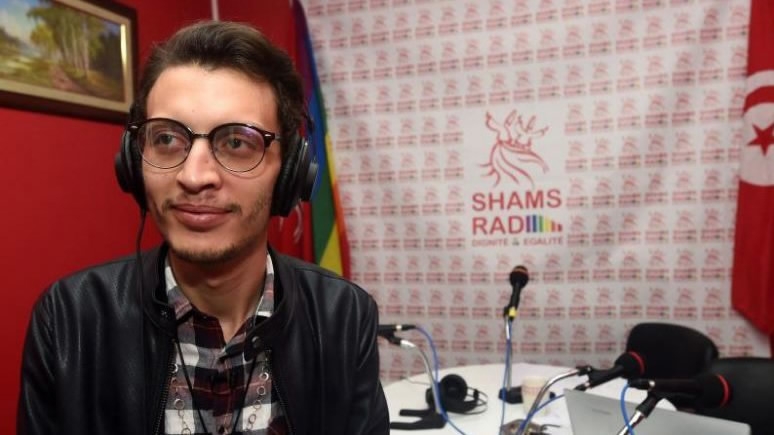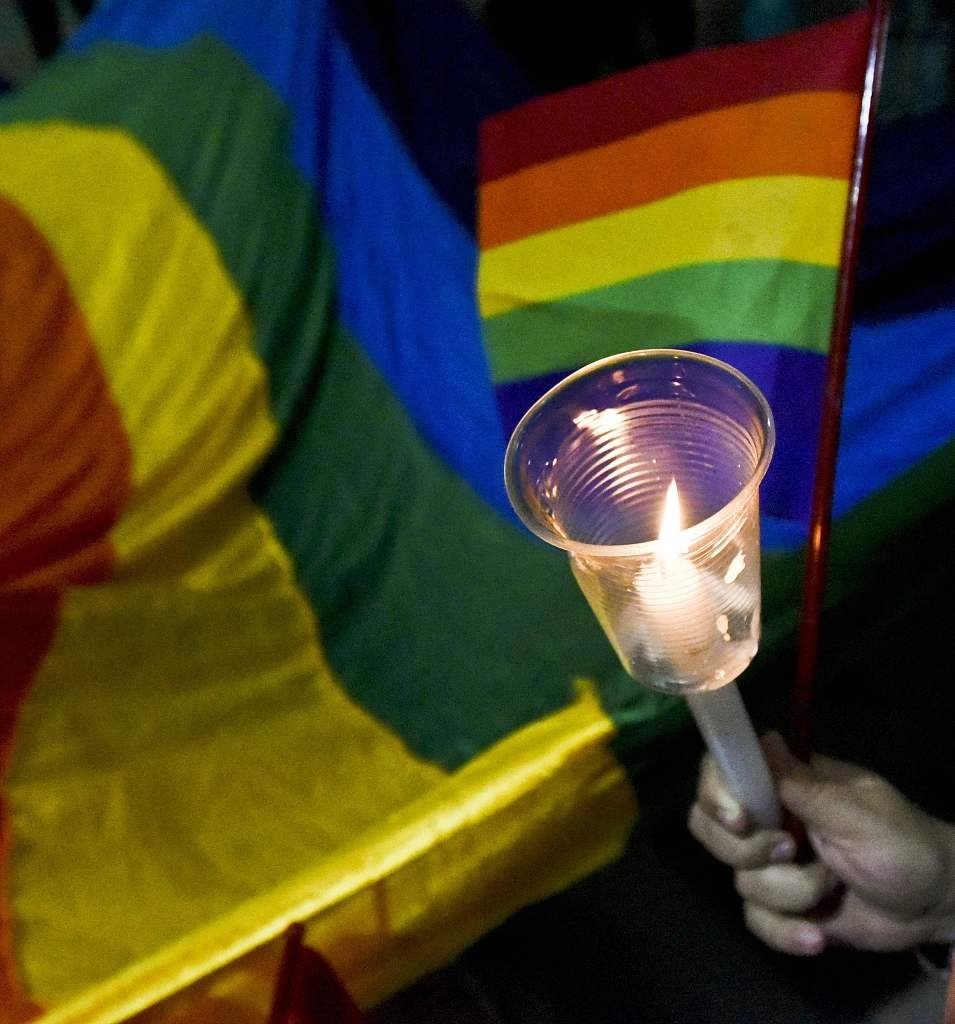
Culture
09:44, 19-Dec-2017
LGBT radio goes online in Tunisia despite threats
CGTN

An online radio station catering for the LGBT community, believed to be the first of its kind in the Arab world, started broadcasting in Tunisia on Monday.
The outlet - set up by LGBT (lesbian, gay, bisexual, transgender) rights group Shams - aims to tackle deep-rooted hostility in the North African state, where homosexuality is officially illegal.
The slogan of Shams Rad station is "dignity, equality" and its presenters include prominent activists, but those behind it have still reported receiving threats.
It intends "to sensitize the people of Tunisia, ordinary citizens and political decision makers about homophobia in society and to defend individual liberties," said director general Bouhdid Belhadi.

A Colombian LGBT community member and supporter holds up a lit candle on June 15, 2016, in Cali, Colombia, in solidarity with the victims of the Orlando mass shooting. /VCG Photo
A Colombian LGBT community member and supporter holds up a lit candle on June 15, 2016, in Cali, Colombia, in solidarity with the victims of the Orlando mass shooting. /VCG Photo
The station is meant to be on air daily from breakfast time to midnight and will broadcast programs on political, economic and social issues, with a focus on the LGBT community. "We are going to touch, through the subjects we treat, everyone living on Tunisian soil," Belhadi said.
"Our editorial policy is to talk about rights and individual freedoms in general, but the focus will be on the LGBT community."
Gay rights activists have emerged from the shadows in Tunisia since the revolution in 2011, but their position remains precarious in Tunisia's conservative Muslim society. Article 230 of the penal code includes a punishment of up to three years in prison for homosexuality and young men are regularly detained and prosecuted.
While activists have welcomed the launch of the radio station, it has drawn some hostile reactions on social networks and from other media. Belhadi reported receiving more than 4,000 insults and threats online, including death threats.
Source(s): AFP

SITEMAP
Copyright © 2018 CGTN. Beijing ICP prepared NO.16065310-3
Copyright © 2018 CGTN. Beijing ICP prepared NO.16065310-3